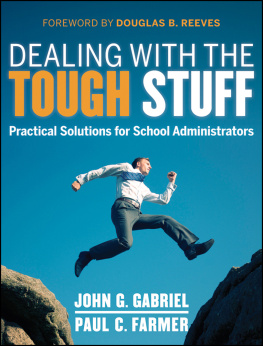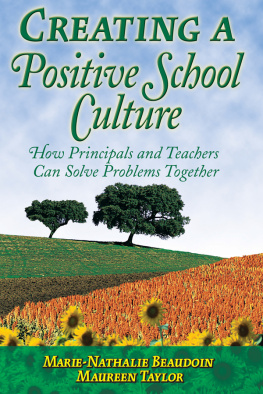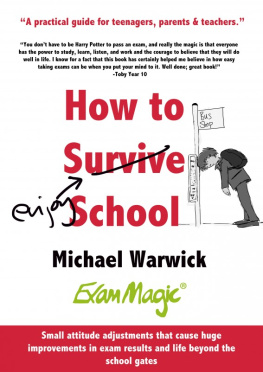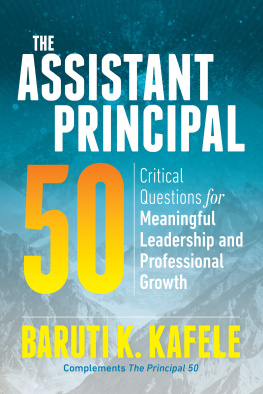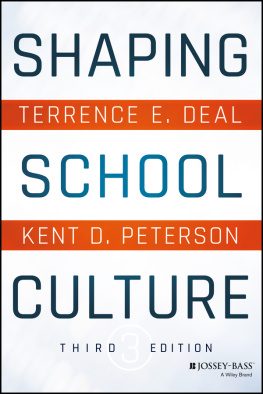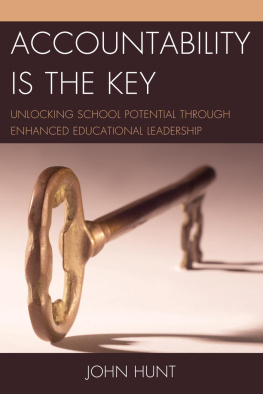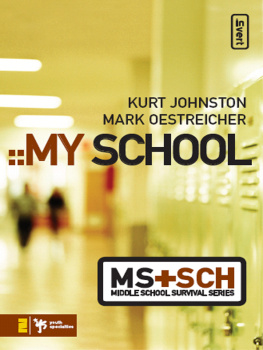
Copyright 2012 by John Wiley & Sons, Inc. All rights reserved.
Published by Jossey-Bass
A Wiley Imprint
One Montgomery Street, Suite 1200, San Francisco, CA 94104-4594www.josseybass.com
No part of this publication may be reproduced, stored in a retrieval system, or transmitted in any form or by any means, electronic, mechanical, photocopying, recording, scanning, or otherwise, except as permitted under Section 107 or 108 of the 1976 United States Copyright Act, without either the prior written permission of the publisher, or authorization through payment of the appropriate per-copy fee to the Copyright Clearance Center, Inc., 222 Rosewood Drive, Danvers, MA 01923, 978-750-8400, fax 978-646-8600, or on the Web at www.copyright.com. Requests to the publisher for permission should be addressed to the Permissions Department, John Wiley & Sons, Inc., 111 River Street, Hoboken, NJ 07030, 201-748-6011, fax 201-748-6008, or online at www.wiley.com/go/permissions.
Limit of Liability/Disclaimer of Warranty: While the publisher and author have used their best efforts in preparing this book, they make no representations or warranties with respect to the accuracy or completeness of the contents of this book and specifically disclaim any implied warranties of merchantability or fitness for a particular purpose. No warranty may be created or extended by sales representatives or written sales materials. The advice and strategies contained herein may not be suitable for your situation. You should consult with a professional where appropriate. Neither the publisher nor author shall be liable for any loss of profit or any other commercial damages, including but not limited to special, incidental, consequential, or other damages. Readers should be aware that Internet Web sites offered as citations and/or sources for further information may have changed or disappeared between the time this was written and when it is read.
Jossey-Bass books and products are available through most bookstores. To contact Jossey-Bass directly call our Customer Care Department within the U.S. at 800-956-7739, outside the U.S. at 317-572-3986, or fax 317-572-4002.
Wiley publishes in a variety of print and electronic formats and by print-on-demand. Some material included with standard print versions of this book may not be included in e-books or in print-on-demand. If this book refers to media such as a CD or DVD that is not included in the version you purchased, you may download this material at http://booksupport.wiley.com. For more information about Wiley products, visit www.wiley.com.
Front cover photo by Pesky Monkey/ iStockphoto
Library of Congress Cataloging-in-Publication Data
Gabriel, John G.
Dealing with the tough stuff : practical solutions for school administrators / John G. Gabriel and Paul C. Farmer. First edition.
pages cm
Includes bibliographical references and index.
ISBN 978-1-118-13294-4 (cloth); ISBN 978-1-118-22511-0 (ebk.); 978-1-118-23862-2 (ebk.); 978-1-118-26321-1 (ebk.)
1. School management and organization. 2. First year school principals. I. Farmer, Paul C. II. Title.
LB2805.G128 2012
371.2dc23
2012011846
To the countless teachers and administrators who selflessly dedicate their lives to one of service: we have been honored to know and work with you, and we thank you for helping us become effective administrators.
FOREWORD
This is the book I needed when I started teaching almost forty years ago. In order to be a good math teacher, I thought, I needed to know the Pythagorean Theorem somewhat better than my students. I needed to reward good performance and punish bad performance. I needed to keep parents happy and, most of all, keep the principal out of my classroom. What could possibly go wrong with this theory of teaching?
As Gabriel and Farmer incisively remind us, I was dead wrong in my early theories. While I was worrying about parents and principals, I was forgetting about studentsthe daily dramas of their lives and the real work of teaching and leadership that presented challenges far beyond ensuring that my students understood that the square of the hypotenuse was equal to the square of the two sides of a right triangle. In fact, as the authors forcefully write, the triangle most important to students is not that of Pythagoras but rather of friend, foe, and teacher in the drama of school. Although I continue to think that the Pythagorean Theorem is important, this book helps me understand that administrators and teachers would be well advised to pay as much attention to the friends and rivals of Pythagoras as to his theorem.
What can school leaders do to improve the school environment for students, teachers, and administrators? Prevailing opinions suggest a range of contradictory solutions, from improving teacher efficacy by employing greater levels of data analysis to relieving teachers stress and anxiety by eliminating data analysis. Perhaps we should give students more freedom? Nolets restrict their choices so that they gain proficiency and defer their preferences until later. Shall we give school principals the discretion to respond to local needs, or create a consistent system of curriculum and assessment in the hopes that this will provide equity for all students within the system? Although strong arguments can be made for a variety of educational options, Gabriel and Farmer appeal to the more immediate needs of school administrators. The authors remind us that the imperative of improving schools in the real world is not always accomplished through strategic plans or gauzy vision statements. What school leaders need are practical solutions to address their most persistent challenge: How can we engage students, teachers, and leaders today with maximum learning and minimum disruption?
The answers, the authors suggest, include a consistent and practical set of protocols for responding to students, in which adults in the school model respectful responses to challenges. Their lessons extend far beyond classroom conflicts. (Indeed, their advice would be sound for many boardroom brawls I have witnessed.) Superintendents cabinets, board meetings, and parent organizations would all benefit from these thoughtful protocols for dealing with disagreement and dissent.
This is an immensely practical book, providing a vital resource to new school administrators while at the same time helping veteran educators recognize that the remedies we used decades ago may not be as effective as we thought. I particularly appreciate the blend of twenty-first-century strategies, sensitive to digital natives, with tried-and-true methods for dealing with student disruptions, which respond to age-old motivational dynamics between students and teachers.
Although some of the advice in the book may strike the reader as common sense, most educators know that common sense is decidedly uncommon. Just listen, the authors suggest, when my initial inclination is to lecture. Dont bluff, these pages advise, when my instinct is that of the blowhard, full of bluster and blame. I wish I could say that Ive learned every lesson that Gabriel and Farmer have to offer, but the simple truth is that all of us who work with adolescents and preadolescents must look in the mirror and acknowledge the chasm between what we know to be effective practice and our daily reality. That is precisely the reason that this book is so effective: it is born of practitioners. Although some readers may sigh and say, What a blinding flash of the obvious! other observers will wonder why such seemingly obvious findings are not more commonly reflected in our collective professional practices.
Next page
